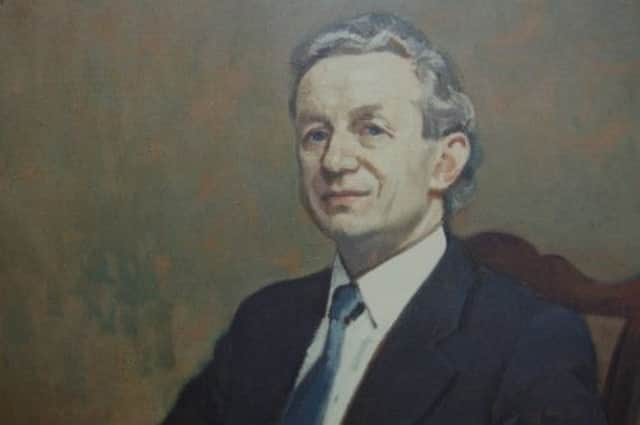Obituary: Dr William Fraser, Post Office executive officer and former Scottish Labour Party chairman.


He once acknowledged that becoming involved in the Labour party was a gut reaction, as opposed to an intellectual conviction. That came later. But there is no doubt that the experiences of poverty seared into William Fraser as a child prompted his lifelong quest for social justice.
Watching his widowed mother struggle to raise her family on a pittance, then losing her too at an early age, helped to shape the way he lived his life – guided by the values of service, the common good and collective responsibility.
Advertisement
Hide AdAdvertisement
Hide AdThose convictions, ethics and morals saw him give lifelong commitment to the people of Aberdeen, the party and the local authority as a councillor, bailey, justice of the peace, Lord Provost and chairman of both the Scottish Trades Union Congress, of which he was the youngest chair, and the Labour Party, all while rising through the ranks in the Post Office where he had begun as a 14-year-old telegraph boy.
One of a family of four, his birth on Hogmanay 1921 was a triumph of medical intervention: his mother had developed a tumour during her pregnancy and underwent groundbreaking surgery, carried out by a doctor who had travelled north to operate.
The procedure, watched by academics and students from across the country, saved the lives of both mother and baby.
Safely delivered, the youngster grew up in Aberdeen’s Fittie area. But after his father William, a riveter, died in 1930, the family experienced extreme financial hardship, despite his mother Jessie going out to work as a cleaner to try to support her children.
That mothers and children in such circumstances were forced to depend on charity was a notion he found deeply offensive and triggered his deep-seated sense of social justice.
After an education at the city’s York Street and Frederick Street Schools he began work in the mail room at Aberdeen Post Office in 1936 and remained with the postal service for the rest of his career. During the Second World War he served with the RAF in air traffic control in southern France and, after being demobbed in 1946, joined the Labour Party.
He helped to build its Aberdeen branch and served as president of Aberdeen Trades Council in 1952.
With the unstinting support of his wife Marion, whom he married in 1961 and who shared his beliefs, he pursued his compulsion to help others through local and national politics, whilst continuing his commitment to the Post Office, a service in public ownership about which he was passionate. A member of the Scottish Executive of the Labour party for 25 years from 1949, he chaired the executive from 1962-63. He became a town councillor in the 1970s and served Aberdeen District Council for more than 20 years, from 1974 until 1996.
Advertisement
Hide AdAdvertisement
Hide AdA man with a public persona that was conscientious, quiet, dignified and dapper, his tenure as Lord Provost covered the late 1970s, a time of great change as Aberdeen began to forge its future as a global energy centre.
A staunch and lifelong supporter of Aberdeen Football Club – as a boy he would watch the match from the top of nearby Miser’s Hill when he had no money to pay – he was one of the visionaries and instigators of the Aberdeen International Football Festival, an annual event that began in 1981 for teenagers from around the world. Fraser, who was also a member of Aberdeen University Court, was awarded an honorary law degree by the university in 1995 as part of its quincentenary celebrations.
He spent all of his 91 years in his birthplace, a city he loved as well as served tirelessly.
But his real passion was his family.
He never missed an opportunity to praise Marion, whom he referred to as his “lovely lady wife”, and with his family was a relentlessly cheerful father.
He is survived by his wife, children Susan, Michael, David and Gordon, and nine grandchildren.